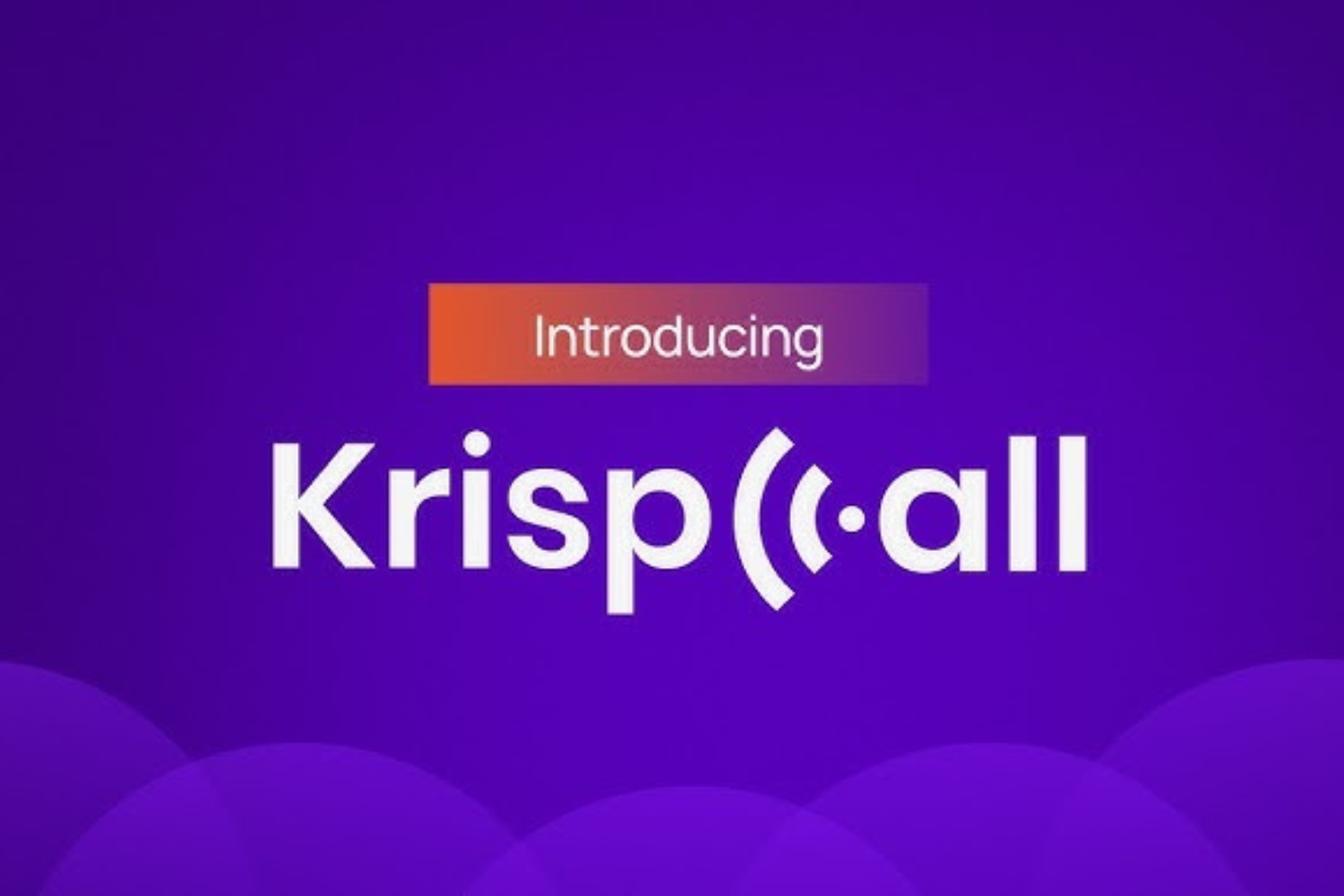As of today, a CRM Software System is one of the largest marketing tools in the world. And it has increasingly proven to be the best technological asset that companies can invest in. Not to mention, the prominence that the cloud CRM software market has been gaining over the years.
As well as the ease with which CRMs can integrate with other applications that businesses generally use. A CRM software system help implementers cover every aspect of their business cycle. With an increase in sales & marketing returns, all while helping them cut down on their costs.
Basically, a good CRM software system often comes with some essential building blocks. Thus, in general, there are eight essential building blocks of a CRM software system like Zoho. Including vision, technology, strategy, information, metrics, processes, collaboration, and customer experience.
What is CRM?
Learn More: CRM | Why is Customer Relationship Management useful?
A CRM system helps businesses keep customer contact details up to date, track every customer interaction, and manage customer accounts. It is designed to help businesses improve customer relationships and also Customer Lifetime Value (CLV).
This is vital because of the vast amount of such data businesses generate daily. The issue of customer data raises a challenge that CRM systems exist to address.
Every time someone picks up the phone and talks to a customer goes out to meet a new sales prospect, or follows up a promising lead, they learn something new and potentially valuable. Traditionally, all this data went into analog or unconnected media such as notebooks or laptops, or even just stayed in people’s heads.
With no CRM?
These methods make it all too easy for details to get lost or forgotten, or for a meeting or phone conversation not to be followed up on as promised. Choosing which leads or prospects to focus on can be a matter of guesswork rather than a rigorous exercise based on fact.
Worse still, if individuals holding access to key customer information were to leave, then all their knowledge could walk out of the door with them. A CRM system aims to address challenges like these. It takes customer data and turns it into useful, actionable insight that can transform a business.
Related Topic: Customer Support Software | 10 Best & Business Benefits
It also helps everyone in a business to easily update records and to get access to the latest information. If the system is cloud-based, they can do this wherever they are, on any connected device. When people talk about CRM, they might mean any of the following three things.
- CRM as Technology: This is a technology product, often in the cloud, that teams use to record, report and analyze interactions between the company and users. This is also what is mainly called a CRM system solution.
- CRM as a Strategy: This is a business’ philosophy about how relationships with customers and potential customers should be managed
- CRM as a Process: Think of this as a system a business adopts to nurture and manage those relationships.
Watch out for the following key indicators
Whether you’re a small business looking for a place to store information and have it accessible across multiple devices. Or you’re even a large business wanting to manage customer interactions and focus on improving customer satisfaction.
Eventually, you’re going to need Customer Relationship Management (CRM) software. That’s if your current process is unable to find solutions to these pressing problems.
Getting answers to the most basic questions:
Ask yourself if you can get quick answers to the most basic questions like these - What’s my number of customers and how many did we win/lose in the previous quarter? What was my revenue last month? Who closed the most deals?
Checking the entry of incorrect data:
Bad decisions come from bad data. Failure to check the accuracy of data entering your system is a real cause of concern. Once you have a validation scheme with automated data entry, the inflow of incorrect information can be prevented before it causes you any trouble.
Connecting with customers and prospects:
Customers can come from a variety of mediums—websites, social media, phone calls, etc.— and only a multi-channel communication system can bring them closer to your business and lets you cover all customer touch-points that are relevant to your selling process.
Personalizing marketing efforts:
Your marketing endeavors can simply go down the drain if your methods are not attracting prospects to try out your service. Tasks like sending out promotions, newsletters, etc. can be personalized to ensure that it connects with every customer on a personal level.
Bringing teams together:
When every team is an island of its own, it becomes a massive bottleneck for any organization to grow. Real-time customer information cannot be shared across teams which in turn affects the way you serve your customer needs.
What does a CRM System do?
A CRM system essentially provides a central place where businesses can store customer and prospect data, track customer interactions, and share this information with colleagues. It allows businesses to manage relationships with customers, helping the business to grow.
With a CRM system in place, every question, every service request, every preference, and every past contact detail about every customer is instantly available, which means that every new interaction with them should always be personalized, relevant, and up to date.
Related Topic: Why Client Onboarding is Important for a Business Success
As well as tracking every phone call, email sent, meeting held and presentation delivered, CRM systems can also be used to add notes, schedule follow-ups, and organize the next steps that need to be taken. This ensures that opportunities to close deals or grow customer accounts won’t be missed.
By understanding customers better, cross-selling and up-selling opportunities become clearer too, giving organizations a much better chance to win new business from existing customers.
The key features of a CRM system typically include:
- Contact management: All the latest information about customers — from contact details to service conversations — is easily available to access and update.
- Lead management: The system enables users to track pipeline activities, tasks, and targets, all the way from prospect through to conversion.
- Sales forecasting: Forecasting reports enable salespeople to get better visibility over their pipelines, qualify leads more accurately, and see how close they are to hitting their targets. Sales managers can use reports to motivate and manage their people.
- Instant messaging between employees: Real-time instant messaging functionality makes it easier for coworkers to ask and answer each other’s queries, for instance in support of a live sales opp or service interaction. Managers can check in on staff in the field, and employees can ask for instant feedback or support as needed.
- Email tracking and integration with Outlook and Gmail: Syncing email clients instantly with the CRM system allows business people to get a complete view of their customers and leads without having to log in and out of different systems. Calendars and contacts can be viewed across every device, and emails can be created and managed from within a single workflow.
- File and content sharing: Team members can upload information to a centrally stored location, and share it easily and instantly with coworkers.
- Dashboard-based analytics: Information is aggregated and presented in intuitive, meaningful dashboard displays that can be customized based on each individual’s priorities.
The key uses include:
1. Lead Management
If getting quality leads is one thing, tracking and managing them to deal with closure is another. CRM offers you everything that you need to know about your leads to convert them into happy, paying customers.
With lead scoring and automated lead assignment, you can assign leads based on a variety of parameters and know which leads have the highest chance of moving down the pipeline. Learn more about lead management.
2. Contact Management
Contact management features in CRM help you organize your business contacts in one place. You’ll know when and why you contacted a customer the last time, the best time to reach them, mentions from social media interactions, and analytics to reach customers through email and other forms of communication. Learn more about contact management.
3. Deal Management
A deal once lost is lost forever. The deal management features in CRM give you the complete picture of your current and future deals, and lets you know what went wrong with your past unsuccessful ones. CRM allows you to segment deals based on their current stage in the pipeline and can tell you the probability of winning any deal. Learn more about managing deals.
4. Email Management
Email management is a core function of any business and an online CRM solution lets you take complete control of it. Any email client that you use can be integrated with your customer relationship management tool, which means you save time switching between tabs to get work done.
The email management system inside a CRM lets you prioritize emails, analyze the response to every email, and ensures you have thorough follow-ups with your receivers. Learn more about managing emails in CRM.
5. Sales Automation
As a CRM implementer for your business, you want your sales team to spend more time selling and less time doing other administrative work. Here’s where automating your sales process will help. Sales automation will help you replace your current mundane tasks with intelligent workflows and macros.
Leads will also flow through your pipeline more easily with the automatic assignment of leads to the right sales reps. Learn more about workflow automation.
6. Reporting & Analytics
Analytics-driven business culture can go a long way in transforming your organization’s decision-making style from “gut feeling” to “data-driven.” CRM system offers businesses the necessary intelligence to process data from various sources and churn out valuable insights to guide them with data.
From basic charts to advanced analytics insights, such as spotting anomalies in your business, an inbuilt analytics engine inside CRM can help enterprises gain a crucial competitive advantage. Learn more about analyzing your CRM data.
7. Marketing Automation
More often, companies find themselves wasting their marketing budget due to poor planning and the failure to identify the real target audience for their brand. A disconnect between sales and marketing teams can hamper these efforts.
With a Marketing CRM with built-in marketing automation and campaign management features, you can generate new leads, execute targeted email marketing campaigns, compare ad spend to sales revenue, and ultimately get the maximum ROI on your marketing spend. Learn more about marketing automation.
8. Customization
There is never a one-size-fits-all approach when it comes to implementing a CRM platform for your business. You can customize your CRM with custom functions, buttons, modules, fields, and layouts, or even build a CRM entirely from scratch with offerings unique to your business vertical. Learn more about customizing your CRM.
9. Mobile CRM
At a time when global mobile usage has overtaken desktops, it is vital that your CRM system allows your workforce to go completely mobile. Mobile CRM helps sales reps close more deals on the go. It allows managers to add and update data when they shuttle between multiple business appointments, and even when they are offline.
Trade shows, business meetings, networking events, both in flight and on the road, mobile CRM apps help you be business-ready no matter where your business takes you. Learn more about mobile CRM.
Who uses a CRM Software System?
Advanced cloud-based CRM platforms, like Salesforce and Zoho, go much further than the basic CRM functionality. For instance, by integrating with marketing automation and customer service systems to provide a complete, cloud-based ecosystem for customer data.
1. B2B
2. B2C
3. SMBs
4. Enterprises
With advanced CRM features like workflow management, advanced analytics, territory management, sales, and marketing automation, an enterprise CRM system can greatly help reduce the time salespeople spend on mundane tasks. Or even have more time to concentrate on their customers and unify their operations across multiple geographic locations.
5. Cloud
Surprisingly, as technology evolves, the way in which we work and connect with customers evolves too. Advanced systems go beyond obvious CRM functionality to respond to developments such as remote working and artificial intelligence. Cloud-based CRM systems excel here as they can be updated as new technology becomes the standard.
6. Remote Working
Some CRM systems such as Salesforce now offer mobile CRM capabilities, which allow salespeople to access key information wherever they are, and update that information straight after a meeting while they are still in the field, so colleagues can follow up with the very latest information before the competition.
With mobile CRM it’s possible to run a whole business from a phone – closing deals, servicing customers, and even delivering 1:1 marketing campaigns without being tied to a desk. This functionality can also support homeworking, and even allow organizations to reduce the amount of office space needed.
7. Social Media Integration
By all means, CRM platforms today can help businesses make the most of social media as a source of new leads, intelligence on prospects, and information for customer service agents. All these new streams of social data are integrated with the rest of the available data about a customer. In order to deliver the fullest ever picture and a host of new actionable insights.
8. Artificial Intelligence
As a matter of fact, some CRM systems can use artificial intelligence (AI) to learn from available data in order to make recommendations based on company processes. In this way, the system constantly and automatically improves, becoming smarter and more targeted to the needs of customers.
Evaluating & Comparing types of CRM Systems
In general, when evaluating and comparing CRM systems, there are three types to consider: desktop, server, and cloud. A desktop system is really only for a single user who just needs an electronic version of a Rolodex for simple customer contact management. So, for most businesses, the key question to answer is: server or cloud?
The three key types of CRM system include:
- Desktop Systems: That run on a single computer
- Client/Server System: That has a central database stored on a server. Usually, self-hosted with software installed on each user’s PC or laptop to access it
- Cloud-based Systems: Those that are supplied and hosted online by a third-party provider, and accessible anywhere via a connected device.
So, you’ve decided that it’s time to implement a CRM and you’ve even chosen your system. What now? The following best practices will help you and your team implement and use a CRM successfully.
Map out your sales process and ingrain it in your sales team
- How do potential customers find you and how are they going to get into your CRM?
- What happens to those potentials once they are in your system?
- Or, what steps should your sales team follow to their assigned lead?
- Lastly, what happens when your sales team closes a deal?
Train your staff and management teams on CRM
- Does your team understand why you’re implementing a CRM system?
- Is your management team aware of the time-saving benefits they’ll receive by using a CRM system?
- Does your team understand the value of the customer life cycle and how a CRM system can help?
- Can you restructure employee compensation to reinforce the benefits of using a CRM system?
Use automation for repetitive tasks
- First, consider actions that are performed on every lead, contact, and potential, and that could be automated.
- Secondly, look at the specific tasks that should be automatically assigned to a salesperson. As soon as they receive or convert a lead.
Wonder what’s next? Start your CRM journey with Zoho!
In short, as a market leader for more than a decade, Zoho CRM is one of the best online customer relationship management software. Especially, for managing your sales, marketing, support in a single system. Zoho CRM helps businesses of all sizes build excellent customer relationships.
Not forgetting, with CRM Software System features too. Like an inbuilt AI sales assistant, sales pipeline management, marketing automation, analytics, and more. So, you too can join over 150,000 Zoho CRM customers. In that case, those who are happily growing their business with awesome customer relationship management (get started).
Fortunately, with Zoho CRM, you’ll get a 300% improvement in lead conversion rates, a 41% revenue increase per salesperson, and a 27% improvement in customer retention. As well as a 24% decreased sales cycles and a 23% decreased sales and marketing costs.
Takeaway,
Surprisingly, the meaning of CRM has changed a lot over the years. CRM is a term that was initially defined and designed to improve customer service. Today, though, it relates to an entire business strategy. Whereby, a CRM Software System acts as a single repository to bring your sales, marketing, and customer support activities together.
As a result, it streamlines your process, policy, and people in one platform. So, in general, knowing that companies have unique business wants, is very wise. Since they steer clear of going for a one-size-fits-all, “perfect” CRM software system solution. However, it would be hard to pinpoint such a software solution even among branded software solutions.
All in all, the practicable thing to undertake should be to write down the various vital factors which need investigation. Like key features, packages, technical skill levels of the users, company size, etc. Next, you should perform the product research to a full extent.
Related Topic: Bitrix24 | Increase your Sales using the #1 CRM Platform
On the other hand, a CRM Software System helps users focus on their organization’s relationships with individual people. Including customers, service users, colleagues, or suppliers.
As an example, you can browse through some of the best tools to review articles (like Bitrix24). And even scrutinize each of the applications in your shortlist more closely. For sure, such comprehensive product research ascertains you avoid unsuitable software solutions.
Be that as it may, make sure you subscribe to the system that delivers all the benefits your business requires. That’s all! However, do you think that there is something else that we might have missed out on? Please feel free to share some of your thoughts or questions in our comments sections.
Finally, if you’ll need or require more support on any CRM Software System, you can Contact Us and let us know how we can help you.




